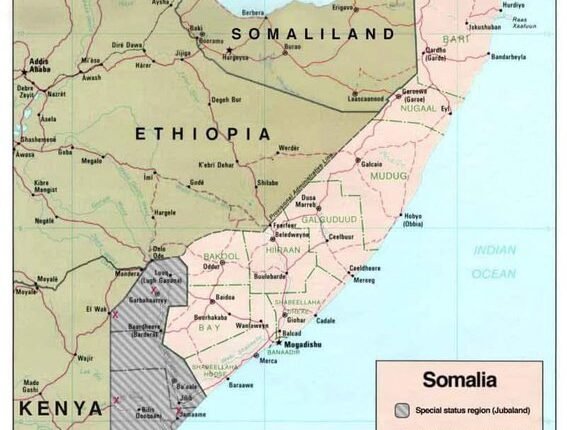On June 25, 2025, thousands of unemployed Kenyan youths most with no career profession took to the streets to protest new tax hikes, declining economic fortunes, and what they see as an increasingly out of touch government. What followed was a series of arrests and weeks later, a controversial ruling on cash bail that is now raising even more questions about justice, equality, and economic disparity in the Kenyan justice system.
Court papers and local media reports show that 45 individuals were arrested during the demonstrations and charged in terms of Kenya’s terrorism laws. This charge alone caused alarm among lawyers and human rights organizations, who noted that while the protests were contentious, there was no publicly reported evidence of terror.
But the shock did not stop with the accusations. All 45 accused were bailed out at KES 300,000 (approximately USD 2,350) more than KES 10 million in total. For most of the youth demonstrators, many of whom were students at the time, graduates or recent graduates, and unemployed youth, this figure is simply out of reach.
World Bank estimates Kenya’s GDP per capita at about USD 2,000 (KES 260,000) by the year 2024. This is lower than what an average Kenyan earns in a year to the figure these protesters are being asked to pay by the court to temporarily gain freedom until trial. Legal observers and human rights activists contend that the bail amount is not only high, but also disproportionate and punitive, particularly in a nation where most of its people are fighting to survive the ballooning cost of living.
“This is a prison sentence disguised as bail,” observed a legal practitioner from the Law Society of Kenya (LSK). “The Constitution grants presumption of innocence, but what kind of justice is this when one has to pay more than he earns in a year in order to stay out of remand?”
There are growing concerns that the government is using the judiciary as a tool of intimidation, and most notably against the youth protest movement. The charges brought under the Prevention of Terrorism Act provide the authorities with greater leeway in detention and surveillance. But in this case, the government has gone too far, critics say,.
Amnesty International Kenya issued a statement denouncing the charges as “a blatant attempt to crush legitimate dissent,” and noted that these acts establish a perilous precedent by which peaceful assembly can be criminalized under the guise of national security.
This is not terror. This is about gagging the youth,” a popular tweet bearing the hashtag #FreeThe45 claimed. Since then, the hashtag has trended, with thousands of Kenyans, from musicians and journalists to lawyers and former legislators, calling for the charges to be withdrawn or bail significantly reduced.
In theory, bail is meant to ensure the return of an accused person in court until trial. It is not meant to punish or keep the accused in custody before any judgment. In Kenya, however, the system has been criticized as a pay-to-play system whereby the wealthy are let off while the poor languish in remand prisons for months, even years.
“Kenya’s criminal justice system is unequal in structure,” one Nairobi defense lawyer said. “It hurts the poor most, especially if you consider that many arrested during protests can’t even afford to hire an attorney.”
In June 25, various families have created online campaigns of fundraising, calling for donations to help their loved ones get released. Others have even sold off livestock and properties, while others just wait, pray, and wish to be rescued.
The bail fiasco is only the latest hot-button issue in what has become a wider crisis of trust between young people and the government. Youth joblessness is near 35%, inflation is increasing, and even mundane services like healthcare and education are getting tougher to come by, so most young Kenyans feel they have been left behind.
The June 25th demonstrations were not just tax protests; they were a protest at the depth of anger against a system that seems set to snub the ordinary citizen. That rage is now being further stoked by a justice system now that would otherwise seemingly reserve justice only for those who can afford it.
Demands have been made that the Director of Public Prosecutions (DPP) return to terrorism charges and have the Chief Justice order new bail orders which are reflective of economic reality. Legal professionals have also called for means-testing bail assessments, whereby one’s ability to pay is considered in setting bail.
So far, however, dozens of young Kenyans are in prison not on account of any evidence against them, but merely because they lack money.
Kenya prides itself on being a constitutional law and democracy champion in the region. But moments like these reveal the weakness of justice where money comes into the picture. The case of the 45 protesters is not one of bail; it’s one of whether the country can deliver on its constitutional oath.
If justice doesn’t see, then it shouldn’t be costly either.
Justice or Punishment? The Outcry Over KES 10 Million Bail for June 25 Protesters



